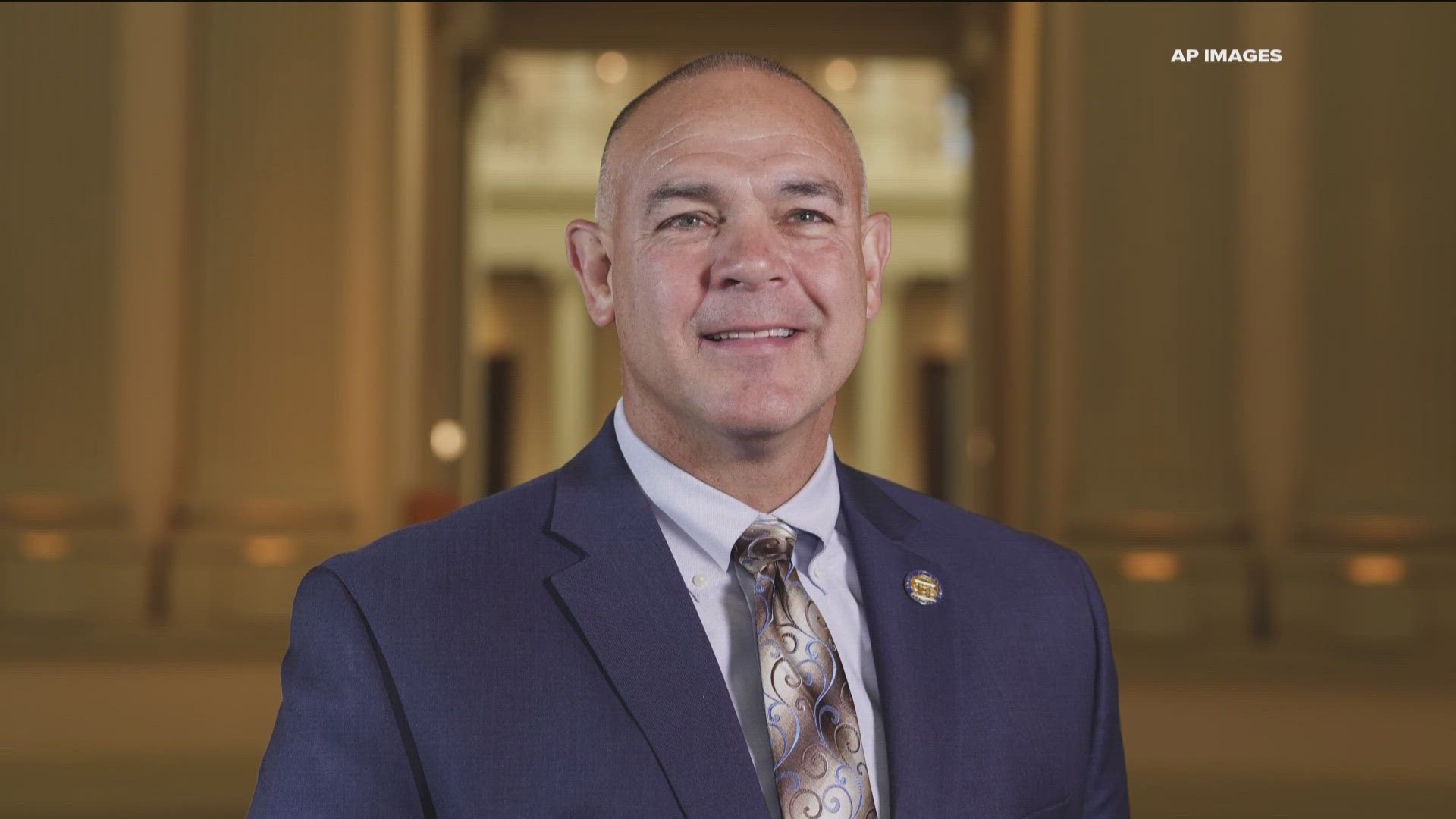Control of the House and Senate will be on the line, as well as the White House, in less than 100 days. That is when voters will cast their ballots. Election forecasters who painstakingly look over polling and other data are making their early predictions for which seats are safe and which are in danger of changing party.
Independent forecasters say there is little risk Democrats will lose the House and could gain some seats. The Senate could go to either party at this point, but forecasts show more Republican seats than Democratic ones are in play.
Republicans currently have 198 seats to the Democrats' 232 in the House. For the GOP to take control, it needs a net gain of 20 seats.
In the Senate, Democrats have 45 seats, but two independent senators will caucus with them -- so consider that 47. Republicans have 53. Democrats need a net gain of four seats.
Here is a brief look at 10 of the seats combined in the House and Senate that appear to be most at risk of changing party. It is based on a compilation of election forecasts by the Cook Political Report, RealClearPolitics, University of Virginia political scientist Larry Sabato, and the non-partisan Inside Elections. The methodology is explained at the bottom of this article.
Senate
Alabama
Sen. Doug Jones (D-Incumbent) vs. Tommy Tuberville (R)
Jones shocked the nation when he was the first Democrat in 26 years to win a U.S. Senate race in deep-red Alabama. He won a 2018 special election to finish out the term vacated by Jeff Sessions. But now he's facing Trump-backed Tuberville. All four forecasters list this is "lean" or "likely" Republican.
Arizona
Sen. Martha McSally (R-Incumbent) vs. Mark Kelly (D)
This is a special election to determine who will fill out the remainder of the term of the late Sen. John McCain, which runs through 2022. After McSally lost the race in 2018 for Arizona's other Senate seat, she was appointed to this one. Now she faces Kelly, a former astronaut and the husband of former Rep. Gabrielle Giffords. She was shot while meeting with constituents in 2011.
Three of the four forecasts are giving Kelly the edge and multiple polls have Kelly ahead by more than the margin of error.
Colorado
Sen. Cory Gardner (R-Incumbent) vs. John Hickenlooper (D)
Gardner is trying to hold onto his seat against Hickenlooper, the former governor of Colorado who had a brief run for the Democratic presidential nomination. Three of the forecasts are giving Hickenlooper the advantage, as are the polls.
Maine
Sen. Susan Collins (R-Incumbent) vs. Sara Gideon (D)
To give a sense of how tough a battle this will be for Collins, a poll by Public Policy Polling released on July 6 had her four points behind Gideon. That was still nine days before Gideon even won the nomination. That said, all four forecasts rate this a toss-up.
North Carolina
Sen. Thom Tillis (R-Incumbent) vs. Cal Cunningham (D)
Tillis is trailing Cunningham in polling by as much as nine points, but this is still rated a toss-up by the forecasters.
House of Representatives
California 25th District
Rep. Mike Garcia (R-Incumbent) vs. Christy Smith (D)
This is the seat formerly held by Democrat Katie Hill. She resigned in October 2019 amid allegations of inappropriate relationships with staffers. Garcia defeated Smith in a May 12 special election to fill out the remainder of Hill's term. Now is the rematch. Forecasters have this as a toss-up or "tilt" Democrat.
Michigan 3rd District
This one is guaranteed to switch hands. Incumbent Rep. Justin Amash, a former Republican who switched to Libertarian in 2019, is not running. He left the GOP after declaring President Donald Trump should be impeached due to the findings by former Special Counsel Robert Mueller.
Democrat Hillary Scholten is running unopposed in her Aug. 4 primary and will face the winner of the Republican primary. Most of the forecasts have this seat leaning Republican.
North Carolina
2nd District
Deborah Ross (D) vs. Alan Swain (R)
Incumbent Rep. George Holding (R) is not seeking re-election.
6th District
Joseph Lee Haywood (R) vs. Kathy Manning (D)
Incumbent Rep. Mark Walker (R) is not seeking re-election.
These two Republican districts have a new look after North Carolina was ordered by a court to redraw its district maps due to partisan gerrymandering. As the Washington Post described, "The 6th will pool Democrats previously divided among three Republican districts around Greensboro. The new 2nd has been carved out of a Democratic stronghold in Raleigh." Both of these seats are listed as "likely" or "safe" Democrat.
Texas 23rd District
Gina Ortiz Jones (D) vs. Tony Gonzales or Raul Reyes Jr. (R)
This is the seat held by Republican incumbent Rep. Will Hurd, but he is not running for re-election. What makes Hurd's departure noteworthy is that he is the lone Black Republican in the House.
Gonzales leads Reyes by seven votes from the July 14 Republican primary, but the results remain unofficial.
Three of the forecasts have this seat as a "lean" Democrat while the other rates it a toss-up.
Methodology: Each one of the four forecasts used in this article rate each race on a scale ranging from "safe" or "solid" Democrat to "toss up" to "safe" or "solid" Republican. Seats currently held by one party, but have multiple forecasters indicating the other party is more likely to win in November, are deemed to be most at risk of switching parties. For example, if a Democrat holds a seat but all the forecasts have it as a toss-up or leaning Republican, that would be a seat in danger of flipping.



